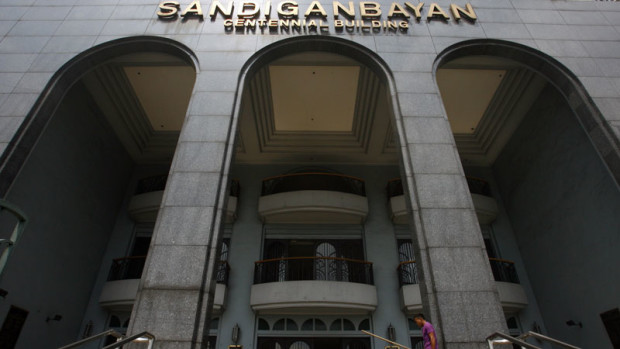Gov’t change no reason for junking of major cases – Sandigan Justice Tang
MANILA — The change in administration was not the reason behind the recent spate of high-profile case dismissals by the Sandiganbayan, Presiding Justice Amparo Cabotaje-Tang said on Wednesday.
In a rare press briefing, Tang said the anti-graft court has always been guided by the evidence before it, even when the corruption cases ended in dismissal or acquittal.
The administration of President Rodrigo Duterte is known to be friendly with some politicians facing high-profile corruption cases, most notably former President and current House Deputy Speaker Gloria Macapagal-Arroyo.
But, Tang stressed that, as was the case during the transition to the Aquino administration, “the Court will never be swayed by change in governments.”
“Please disabuse your minds na simply because there is a change in administration, magbabago na rin pananaw namin sa ebidensya (Please disabuse your minds that simply because there is a change in administration, our treatment of evidence will change too),” Tang told reporters.
Article continues after this advertisementShe said the court “adhere[s] strictly to the requirement that whenever they enter judgments or promulgate resolutions, it should be based on what is before us, meaning, the evidence that is before us.”
Article continues after this advertisementAsked about the timing of the string of dismissals, Tang said: “Nagkataon lang na, na there has been change in, you know, the leadership, ganyan (It just so happened that there has been change in, you know, the leadership, something like that).”
The Supreme Court freed Arroyo in July and dismissed the P366-million plunder case against her over the alleged misuse of the Philippine Charity Sweepstakes Office’s confidential intelligence funds.
A month later, the Sandiganbayan Fourth Division handed Arroyo another legal victory by dismissing the graft cases against her in connection with the scuttled US$329-million national broadband network deal with China’s ZTE Corp.
Former Commission on Elections chairman Benjamin Abalos was cleared of criminal charges alongside Arroyo. The anti-graft court affirmed the NBN-ZTE rulings with finality in November.
The cases were dismissed on demurrer, meaning they were junked midway through trial as the prosecution was deemed to have presented insufficient evidence.
As for another Arroyo administration scandal, the Sandiganbayan Special Second Division in November junked the plunder case against three former Department of Agriculture officials — Undersecretary Jocelyn Bolante, Secretary Luis Ramon Lorenzo, Jr., and Assistant Secretary Ibarra Trinidad Poliquit – -over the P723-million fertilizer fund scam in 2004.
The court found a lack of probable cause to head to trial, despite state prosecutors being given a chance to submit additional evidence to salvage the plunder case in 2014.
Still in connection with the fertilizer fund scam, the court’s First Division dismissed the P4.27-million graft case against former Pampanga governor and senator Manuel Lapid over inordinate delays at the preliminary investigation stage before the Office of the Ombudsman.
Meanwhile, former Makati City Mayor Elenita Binay won back-to-back legal victories in October and November. The court’s Fifth Division first granted her demurrer to the P21.7-million graft case over the allegedly anomalous purchase of City Hall furniture. Weeks later, the Fourth Division acquitted Binay after a full-blown trial on a separate P13.25-million contract for City Hall furniture in 1999.
As for more recent controversies, the Sandiganbayan Special Second Division cleared Valenzuela City Mayor Rexlon Gatchalian of criminal liabilities for issuing business permits to Kentex Manufacturing Corp., finding that it had no connection with the May 2015 slipper factory fire that killed 74.
Asked to comment on the dismissal of cases, Ombudsman Conchita Carpio Morales said ultimately the court would decide on the public officials’ guilt.
“From the time the case is filed in court, the prosecutors gather additional evidence to beef up all the evidence gathered during the preliminary investigation,” Morales said during the Meet the Inquirer Multimedia forum on Dec. 13. “But it’s only the court, the justices, who determine if one is guilty or innocent.” SFM
